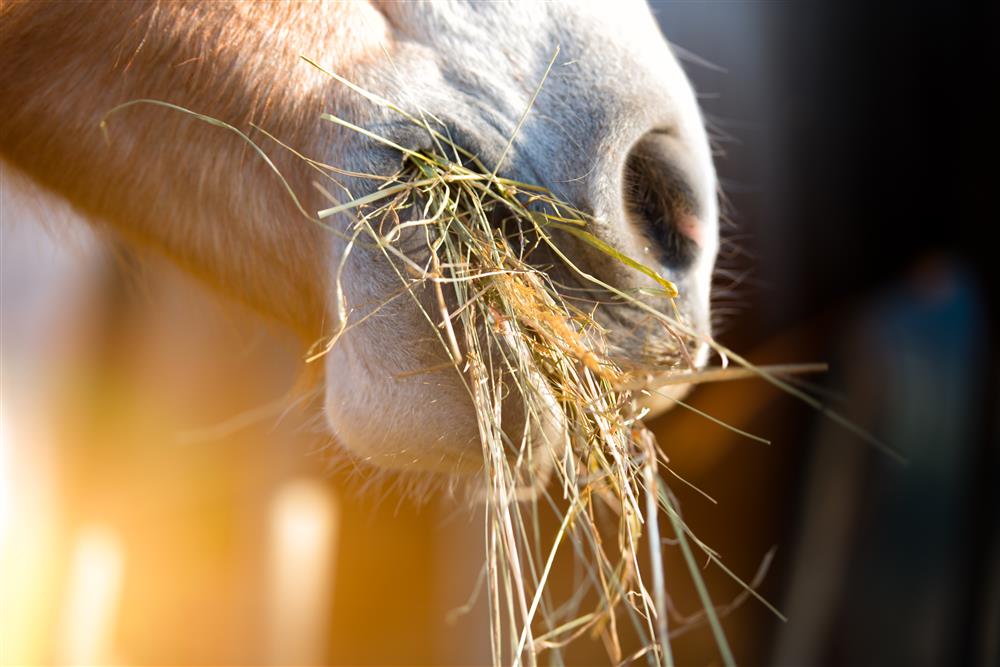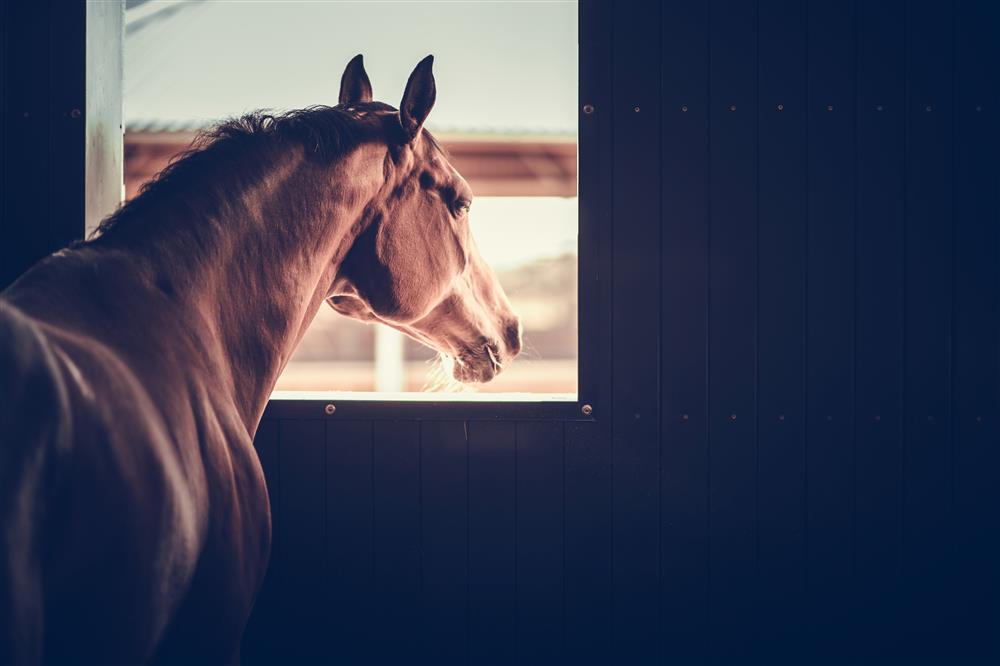Many of us have had to keep our horses on box rest at some point in their lives, often as a result of an injury or ailment. Although it is a necessary tactic at times, this can be rather stressful for us owners, let alone our poor horses - especially those who were at peak competition fitness prior to the box rest.
Some horses will cope with being stabled for a prolonged period of time better than others, and it is very important to consider the impact this can have on your horse as an individual. There are steps you can take to help keep your horse as comfortable as possible during this time and correct nutrition plays a vital role when it comes to making sure that your horse is happy and healthy despite being restricted to the stable. Here are some points to consider...
.jpg)
Problems associated with box rest…
Changes in routine can cause stress and anxiety in the horse, which in turn can impact stomach health. Changes in diet can also cause digestive upset, which is why it is important to make any changes gradually, allowing time for the microbial populations within the horse’s large intestines to adapt to changes in not only type of feed and forage, but also quantities of feed and forage.
However, competition horses usually fed high energy feeds will likely need their diet changing relatively quickly to lower energy alternatives to prevent them bouncing off the walls! Good quality, ad lib forage, along with a vitamin and mineral balancer is a great starting point for the diet of horses on box rest to maintain their body condition.
Digestion…
Providing prebiotics and probiotics can aid these transitions and offer support for digestive health. The horse’s digestive system is naturally stimulated by them walking around and consuming forage little and often (trickle feeding). Unfortunately, being on box rest restricts their movement and therefore decreases the rate and efficiency of digestion. This limited movement increases the risk of food becoming impacted within the digestive tract, particularly when horses go from eating food with a higher moisture content, such as grass, to food with a lower moisture content, such as hay or haylage. The combination of reduced movement and reduced moisture intake increases the risk of food becoming impacted, which can also be exacerbated by horses on box rest drinking less. Soaking hay and providing electrolytes, to encourage the horse to drink, can help to overcome this. Electrolytes are also vital to maintain correct muscle and nerve function and can therefore be helpful in supporting recovery.

Respiratory Health…
Mimicking grazing behaviour as much as possible is beneficial not only for digestive health and mental stimulation, but also for respiratory health. Supplying your hay or haylage on the floor is much better for the health of the horse and is a more natural position for them to take. Offering different types of forage in different parts of the stable will provide some mental stimulation and encourage movement. Consider the air quality around your horse: keeping your stable well ventilated by opening windows, tying your horse up outside whilst mucking out, using dust extracted bedding, and soaking or steaming your hay will all help to reduce the risk of respiratory issues.
Behaviour…
Horses are not designed to be kept in stables 24/7 or to be kept individually due to them being herd animals, therefore periods of box rest can cause a significant amount of psychological stress and nervousness. Keeping your horse calm during these transitions and whilst stabled is key to preventing distress and possibly injury, so keeping an equine friend close by and offering mental stimulation (such as toys and mirrors) alongside a calming supplement will be very useful at this time.

Support your horse during box rest… with Box Rest™
Our new supplement, Box Rest™, is a comprehensive formulation of nutrients to support horses requiring prolonged periods of being stabled.
It incorporates ingredients to support optimal digestion, gastrointestinal wellbeing and a healthy microbial population within the horse's large intestine, ideal for horses with restricted movement. Box Rest™ optimises respiratory health, ideal for those in a dusty stable environment. Electrolytes are also included to keep the horse hydrated and maintain correct muscle and nerve function, alongside a powerful blend of calming nutrients to settle nervous tension and encourage relaxed behaviour in your horse whilst they are restricted to the stable.
Not only can Box Rest™ benefit the horse’s health during times of prolonged stabling, but it will also support the transition of those coming back into work after a period of box rest. Don’t forget that your horse will still require nutritional support to keep them content and healthy throughout the process of returning to their normal routine.
Additional support to consider…
Filled Legs…
Stabled horses can also experience filling in their legs due to reduced circulation caused by restricted movement. Walking in hand will be beneficial if safe and appropriate, as well as feeding No Fill – a powerful blend of herbs which aid the lymphatic and circulatory systems, maintaining correct fluid distribution in the lower limbs.
Condition…
There are a variety of reasons for being on box rest, and all horses are unique so will have varying nutritional needs. Monitor your horse's weight and condition closely and adjust the feed accordingly when required. A forage-based diet supplemented with vitamins and minerals may be sufficient for maintaining the weight and condition of some good doers, but for those prone to weight loss, Condition & Shine is a great supplement for calories without the fizz or excitability.

